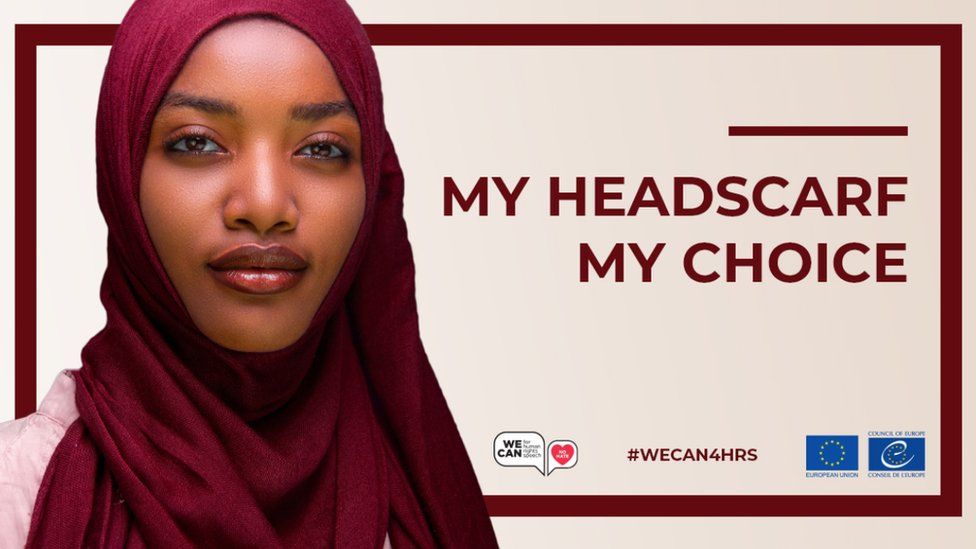“Scandalous and Indecent” and against "common sense" was what French government spokesperson Gabriel Attal and Marine Le Pen said about the campaign for diversity by the Council of Europe.
The campaign called “Freedom in the hijab” aimed to celebrate Europe’s diversity and inclusivity. Oddly enough, the comments made by the French politicians sound rather familiar. Especially if we place them during the height of European colonialism in the 19th century.
When the first European colonial settlements arrived in Africa, Asia or Latin America, they encountered a very different reality from their own: different costumes interalia different religions. Something we are gladly still able to do today – travel somewhere different, appreciate and learn from each other.
However, what followed was not an exchange of cultures, but rather the violent and relentless dominance of European colonialism over indigenous peoples and years of exploitation. Through this incredibly tragic process, of which legacy is still very much structurally present in our daily lives, many lives have been lost and voices have been silenced to this day.
Nevertheless, we can clearly see that this silencing still goes on without a flinch.
The debate over the voluntary use of the Hijab by women has taken central stage in recent political discourse. Debates which, despite their false rhetoric, do not necessarily care for the freedom of these women, but have been hijacked by populist parties, such as of Marine Le Pen’s. Through a racist, Islamophobic and xenophobic narrative they instrumentalize the grievances of the French people – whatever they are – to instigate even more popular discontent.
However, if you talk to these French politicians, they will keep on arguing that this has much rather to do with the defense of ‘French secular values’ and defending women’s rights.
What I do find curious, if not incredibly denouncing of this whole situation, is that Muslim women are neither asked about their experiences wearing the hijab nor about their opinion and will, regarding the use of such. I do not see representatives of Muslim women in the French government making such statements. Instead, I see people who can relate to them very little, justifying their narratives through the weaponization of secularism.
Nonetheless as in colonial times, their lives of Muslim women are decided by others, and as a consequence, it is dictated what they must do; if they want to follow the path of the ‘civilized’, of the Western superiority.
Moreover, ironically, this is argued to be all in their best interest and for protecting their freedom. But how can it be in their best interest when they are not asked or when there is a clear uprising – take the movement ‘Hands off my Hijab’ for example – from Muslim women against this Islamophobic and paternalistic narrative?
Yet again, we still find ourselves listening to the same colonial narratives and, by default, keep silencing others. As if we are back in the 19th century, Muslim women who choose to wear the hijab are being violently silenced, their experiences and opinions are being discarded and labeled as inadequate. What European governments do not seem to understand is that by forcing a Muslim woman to do something - such as not wearing a hijab in public spaces - does not make them any different from other oppressors, it only adds them to its list.
Furthermore, the European Court of Justice recently stated that under certain conditions, EU companies are allowed to ban employees from wearing a headscarf. It is often pointed out that Muslim women are not well integrated in Western societies, but how can they when they are progressively erased from the public sphere?
As such, the narrative of it being in their best interest makes it translucent to colonial legacies that permeate the world that we live in, and how these unequal power relations are still being justified through false narratives to maintain a certain lost and nostalgic European feeling of colonial ‘status quo’. And so, the question remains: who are we freeing by silencing?

